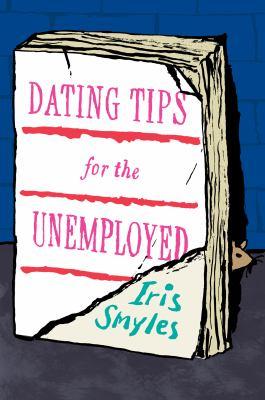
Dating tips for the unemployed
Available Copies by Location
| Location | |
|---|---|
| Community Centre | Available |
Browse Related Items
- ISBN: 0544703383
- ISBN: 9780544703384
- Physical Description 288 pages
- Publisher Boston : Houghton Mifflin Harcourt, 2016.
Content descriptions
| General Note: | "A Mariner original." |
| Immediate Source of Acquisition Note: | LSC 22.95 |
Additional Information

Dating Tips for the Unemployed
Click an element below to view details:
Excerpt
Dating Tips for the Unemployed
BOOK I  SOCRATIC DIALOGUES  On the airplane, I sat next to a sixty-two-year-old Greek American woman named Kiki who got married at thirty-seven. She told me so within five minutes of my sitting down, before adding that it's not too late for me either. By the time I got up ten hours later, I knew all there was to know about the struggles of Kiki's son in AP Physics, his engineering degree from Cooper Union, the car accident four years ago that rendered Kiki unable to wear stilettos, how Kiki met her husband at church, how he scuba dives like her, about her father's shipping company where she worked before marrying, and recent renovations Kiki oversaw to her house in Astoria. I told her my name when she asked upon landing. I said, "It was nice talking to you, too."   The drive from Athens airport to the bus station took an hour. I took a taxi and the young driver helped me with my bags. Tired from the last ten hours of talking, I pretended I couldn't speak Greek, hoping this might exempt me from polite conversation. "Is okay. I speak English very good." He told me the islands were very nice, have I been? That if I wasn't married, I shouldn't worry; this summer, here in Greece, I might meet the love of my life. "You are a kind girl, I can tell," he said. "My business is peoples; I know." After being riddled as to why Greece is better than Americaââe<--ââe<"I love the quiet," I answeredââe<--ââe  My parents picked me up five hours later from a connecting bus station in Volos. Eager to make conversation, they said, "How was your trip?" I told them about the bathroom attendant at the bus stop, a little old lady with a tip jar on a folding chair outside the door, dispensing wads of single-ply toilet paper from a lone roll. "No cologne." I told them about the porcelain footprints inside the stall, the elegant hole in the ground over which I squatted. "It got me thinking; I should have my toilet removed back home. Go minimal, modern, make a statement."  "How long will you stay?" some friends of my parents asked over the roar of the boat's engine the next day. A small party of us was motoring to the island of Skopelos.   "I'm here for the month of August," I yelled back.   Tired from my trip, I was at first excited by the roar of the engine, anticipating a few hours' lull in conversation.   "She doesn't talk much, your daughter!" our host yelled to my father.   "What?"   "She doesn't talk much, your daughter?"   "What?" my dad yelled back.   Then they put the radio on, turning the volume high enough for it to be heard over the engine. Then they raised their voices so they could be heard over the radio. They talked about the view, about the sea and the sky. "It's so relaxing," they yelled in agreement.  Back at the house, every room is filled with guests, aunts and uncles and cousins and friends. In the afternoon, after lunch, I slip off to my room for a nap. Drowsy from the midday heat, I shut my eyes and listen. Eventually the voices drift away. I dream of a long conversation, but when I wake, remember none of what was said.   In the early evening, I step onto the front patio and find Dimitra, my cousin's four-year-old daughter, dancing before an audience of our family. They clap and laugh as she wiggles from side to side. They call her " i micrà ," which means "the little one." It's what they used to call me. My mother stops clapping and says she doesn't like my dress. "What's wrong with it?" I ask, looking down.   "It looks old."   With Dimitra, conversation is easy. When she stops dancing, she sits next to me and I ask, "What color is the sky?" She says, "Blue." I ask, "What does the rooster say?" "Koo-koorikoo," she sings. "And the dog?" "Ghav, ghav," because Greek dogs bark in Greek. Then she, Mamoù (her stuffed monkey), and I sit for coffee. Mamoù drinks too much too fast and becomes sick. I tell him I understand; sometimes I drink too much coffee, too. The micrà reprimands him, and I jump to his defense. I say, "Give the monkey a break, i micrÃ! He's had a long day."   In the kitchen my aunt flips on the radio, and the voices of a Greek talk show waft out. Dimitra jumps up and begins dancing to an argument about the Greek economyââe<--ââe I take my bike into town after and am stopped by a flock of sheep blocking the narrow path that leads to the village. I stand and wait for them to pass. When they see me, all the sheep behh ; they disapprove of my outfitââe<--ââe


